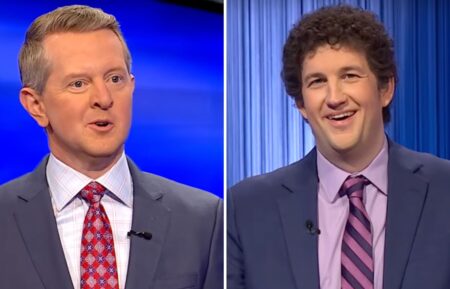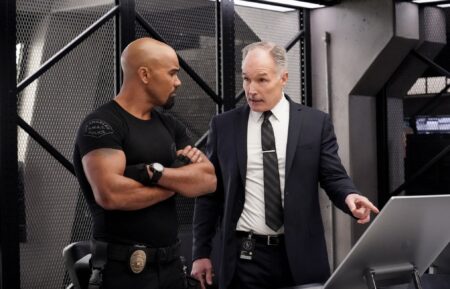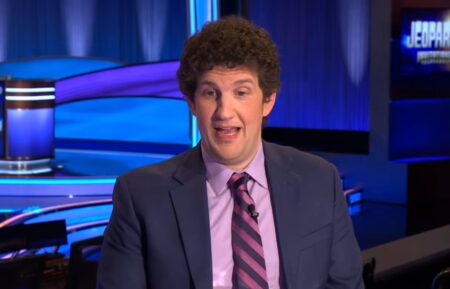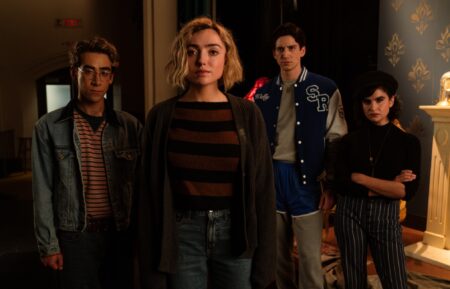Today in TV History: The Mary Tyler Moore Show Signs Off
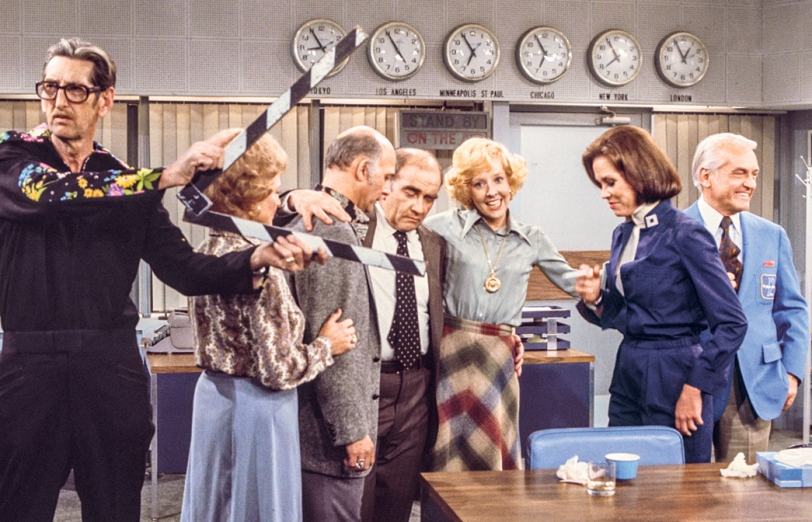
When: March 19, 1977
Where: The Mary Tyler Moore Show
What: The WJM-TV team signs off in the series finale.
Love was all around for The Mary Tyler Moore Show the night its highly anticipated last episode aired. This finale had everything, including guest stars (Valerie Harper and Cloris Leachman, returning from their respective spinoffs, Rhoda and Phyllis), an emotional send-off (the now-classic group hug and a bittersweet rendition of “It’s a Long Way to Tipperary”), and a triumphant curtain call. And, of course, one last comedic twist. When WJM-TV’s new owner wanted to make big changes, instead of firing nincompoop anchor Ted Baxter (Ted Knight), he canned the rest of the staff: Mary (Mary Tyler Moore), Lou (Ed Asner), Murray (Gavin MacLeod), and even Happy Homemaker Sue Ann Nivens (Betty White). Everyone–the fictional characters and the real-life cast, which also included Georgia Engel as Georgette–knew the end was coming, but that didn’t make things any easier.
Allan Burns (cocreator): We felt after seven years, we should quit while we’re ahead. But we loved doing the show, Mary loved doing the show. Mary was the last one who signed on to the idea of shutting the series down, because she loved the process, the show itself, the cast, and the staff. It was harder for her than anyone.
Asner: I think all of us who were still there would have continued had they extended the show. I was quite happy to keep doing the show.
MacLeod: I remember on the first night of the last season, [the season premiere], before they introduced us to go on stage, I was standing with Mary and said, “Mare, I gotta tell ya, thanks for seven great years…” And she says, “Oh, Gavs”—she used to call me Gavs—”don’t start now, we’ll never get through tonight.” And every show after that was a treasured experience to me because I knew the end was coming. We all did.
Jay Sandrich (director): [Toward the close of the final season] we all weren’t getting along well. [So we called a meeting] and somewhere in the middle of it Ted Knight says, “It’s because the show is going to be ending and you’re all feeling it.” And once we heard that, it made sense. It was a very emotional thing for all of us that we weren’t aware of.
Harper: It was Cloris Leachman who called [cocreator] James L. Brooks and Allan Burns and said, “We’d really like to be on the last Mary. We know you’re doing it at the office, but the apartment girls would like to be written in.” So they did.
Burns: We had to get them back in. I mean, there was no way to go off without having Rhoda and Phyllis in it somehow. We needed for them to see Mary again. Lou had brought them out [when everyone got fired] because they all know how much this meant to her, this job and these people.
Harper: It was just a great reunion for me. And I had a chance to get gifts for everybody. I got little gold stars at a jewelers. Small but sweet. And Mary, I got her a necklace with seven stars on it. She was holding down the fort for seven years with all of us.
Burns: When we had the first table read for that last show, we didn’t have the last scene. We were still struggling with it. We had always had this notion that everybody would be fired except Ted. And he, on the news show, announced their departure in the most offhand kind of way; the character wishes them good luck and says, “It’s a long way to Tipperary, it’s a long way to go.” So we decided we would make something of that. And I believe it was Jim who said they ought to go out singing it.
Sandrich: The original last scene didn’t include Betty. And I don’t think Georgia was in it. When we had rehearsed the scene, we talked it over with the writers and I said, “Well, I think we’ve gotta include them.”
Asner: During rehearsal, we went into the group hug, and Jim Brooks said, “Now, is there a funny way that we can get out of this and maybe not necessarily break up the hug?” Fortunately, Georgia said, “Well, there’s Kleenex on the desk; we can go for the Kleenex.” So we all moved over like a centipede to get the Kleenex.
Sandrich: We were doing the lines in rehearsal with not a lot of feeling, just to know what they were. But when Ed read the line “I treasure you people” so beautifully, it just got us all. And I remember telling Mary she should hold off tears as long as she could.
Burns: [On the night of the shoot,] Mary was really disciplined, and she made herself get through this. And we were holding our breath the whole time.
MacLeod: All our family members were there. And Mary’s mom and dad were always there, every Friday night. I think Dick Cavett could have been there. He used to come a lot.
Sandrich: When the [characters] walked out the door and Mary turned the light off, the man backstage who turned the studio light off was so in tears, he forgot! [Laughs] And when the scene was over, tears were running down everybody’s face.
MacLeod: The audience was weeping. They didn’t want this group of people to not be together anymore.
Burns: I can’t remember whose idea it was to include a televised curtain call at the end, but it seemed only appropriate that we should recognize what all these people meant to each other and to the audience. It broke the fourth wall, but what the hell, where were we gonna go from there?
MacLeod: There was a big party going on and I remember taking the stuff out of my dressing room and putting it in my car and Mary’s manager went by. And he said, “Oh, God, I’m so sorry, what are you gonna do now?” I said, “Don’t worry about me, man. Ya know, I’m gonna fly like a bird and land some place.”
Asner: I regard the seven years of Mary as the yellow brick road. It brought great joy to me to be a successful comedic actor. It established great friendships for me. It’s like the Mafia had chosen me to be a made man.
Harper: It was Mary who was absolutely front and center. She supported all of us to such a degree that I have never had a better experience with a group of people than Mary Tyler Moore and Rhoda. And I really know that now. It was absolutely wonderful.
Burns: It wasn’t a bunch of characters saying goodbye, it was a bunch of people. I think that’s why it’s remembered, because there was truth in it.




